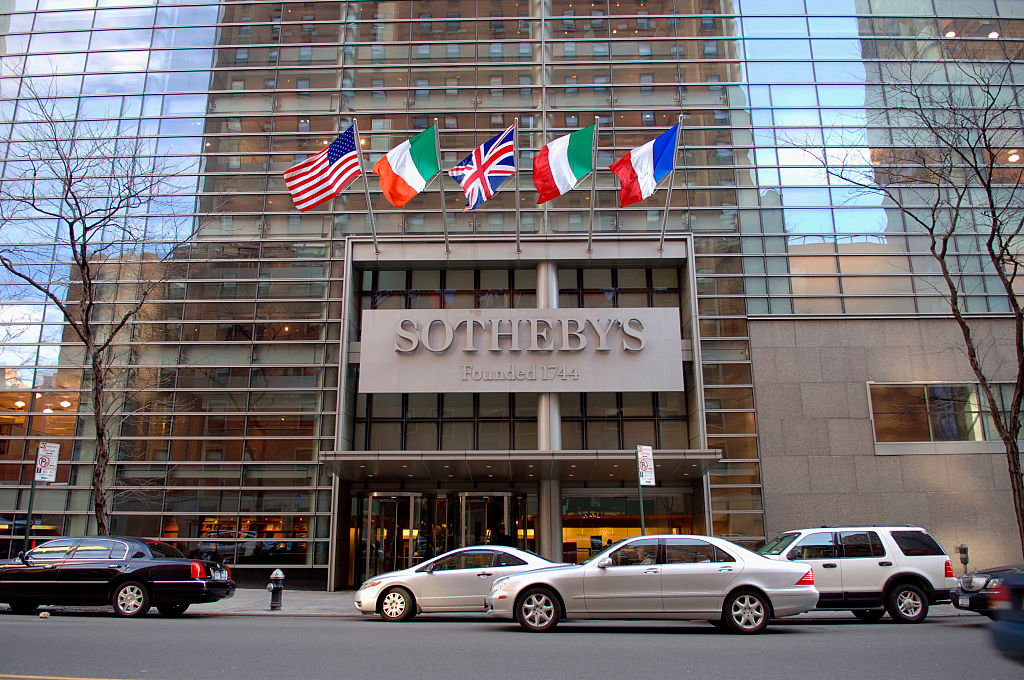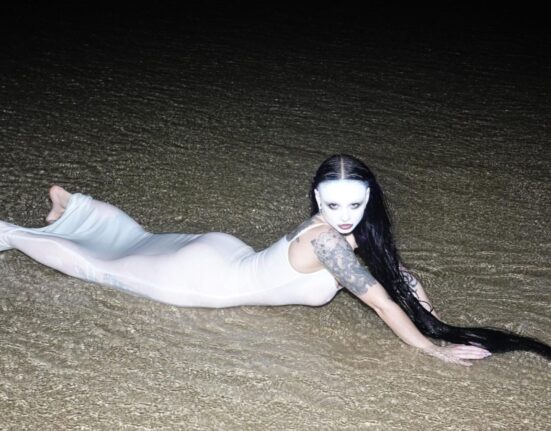To receive Morning Links in your inbox every weekday, sign up for our Breakfast with ARTnews newsletter.
THE HEADLINES
RECORD CHARDIN. A Jean Siméon Chardin still-life painting The Sliced Melon has sold to a European collector for a record $28.7 million, over its much lower estimate of 8 to 12 million euros at Christie’s on Wednesday, according to French reports. The painting was shown at France’s official Salon in 1761, the same year as another much-talked-about Chardin painting of a basket of strawberries, which sold two years ago for $26 million with fees, and is now in the Louvre’s collection thanks to a public funding campaign and private donations.
SOTHEBY’S DOWNGRADE. The S&P has downgraded Sotheby’s debt to B-minus from B, due to a 22 percent revenue drop and higher costs in the first quarter of 2024, reports The Wall Street Journal. The company’s bond prices have dropped about 8% in a month, as concerns mount over whether it can refinance loans by 2026. Revenue fell as Sotheby’s launched a new fee structure to boost margins, just as costs rose as larger consignor advances and sales exhibition expenses raised costs. “Despite the hit to both its top and bottom lines, Sotheby’s continues to pay shareholder dividends, doling out $8.5 million in the first quarter and $90 million last year, according to S&P,” reports the WSJ.
THE DIGEST
The newly launched Artists & Mothers grants aims to help New York–based artists with their childcare needs. The inaugural winner is Carissa Rodriguez, who last month opened her first institutional solo exhibition in Europe. [ARTnews]
Ukrainian artist and musician Artur Snitkus, 36, was killed in combat near Donetsk. His death comes amid intense fighting in eastern Ukraine against the Russian military offensive. Snitkus was described as an “icon of [the] Ukrainaian queer underground,” by arts worker Natalia Martynenko. [The Art Newspaper]
British actor Stephen Fry compared the removal of the Parthenon marbles from Greece to the hypothetical scenario of the Nazi’s stealing the Arc de Triomphe while they occupied France. Speaking on Australian TV, he said it would be “classy” for the British Museum to return the sculptures. [The Guardian]
Influential figures in France’s art scene have signed a petition arguing the planned closing of Paris’ Centre Pompidou for renovation is a “serious error.” Former Pompidou president Alain Seban, art critic Nicolas Bourriaud, the artists Daniel Buren and Gérard and Elisabeth Garouste, are among those who signed the letter published in Le Figaro, and arguing for alternatives to a total museum closure, which they say would give private art institutions a competitive advantage. Rather, they insist closing individual floor sections as they are renovated is a doable alternative. [AFP and Le Figaro]
Later this month, at a Sotheby’s modern and contemporary sale in London, Jean-Michel Basquiat’s 1982 triptych Portrait of the Artist as a Young Derelict, will head to auction for the second time in three years, for an estimated value that is half its price two years ago. Christie’s estimated it was worth $30 million in 2022, but withdrew it, and now Sotheby’s estimates it is worth $15 to $20 million. [ARTnews]
The entertainment company Live Nation has cut ties with Barclays, after a number of artists pulled out of their events in protest against the bank’s tied to Israeli defense industries. [The National]
The Center for Italian Modern Art (Cima) in Manhattan, announced it will close permanently on June 22. It’s current exhibition about the Italian experimental artist and novelist Nanni Balestrini will be it’s last. [The Art Newspaper]
The Picasso museum in Paris has launched an online archive of artworks, photos, and other memorabilia from the artist, many of which have never been shown, ahead of a dedicated study center set to open near the museum later this year. [RFI]
Performance art has gained popularity in Hong Kong, particularly among younger audiences hungry for lived experiences, and despite the region’s new national security laws reducing freedom of expression. [South China Morning Post]
THE KICKER
LOST IN THE ALGORITHM. Social media algorithms influence what is blasted into our screens, and as Kate Brown examines for Artnet News, it is also shaping how performance artists work – whether consciously or not — along with what versions of their creations we are experiencing online. The costs can be significant. “More and more, their content finds traction if it makes sense to us in under ten seconds. What gets buried and seen is tightly bound up in what fits into the rules of virality,” writes Brown of performance art in particular, which she says has been booming thanks to Instagram’s latest, reel-era. As a result, a repeated recipe for viral success increasingly risks dictating creative output, leaving little room for the nuances and depth, which, even when initially embedded in the work, are edited out of online clips, argues Brown. “Social media has, at the same time, made a lot of artists a lot of money and brought the art world new levels of attention. But it is worth asking if it is pushing forward the medium,” she writes. “… if performance art follows the push of the algorithms and is formed and made anew under virtual logic, then it can risk, like painting did, to become equalized and rendered average in the face of the flattened feed, to fade into ambient buzz.”








